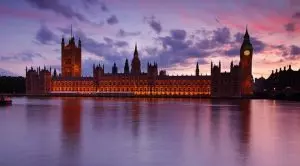 The Department for Digital, Culture, Media and Sports (DCMS) has appointed a new minister to oversee the British gambling industry. It is Helen Whately, Member of Parliament for Faversham and Mid Kent, who is to occupy the role.
The Department for Digital, Culture, Media and Sports (DCMS) has appointed a new minister to oversee the British gambling industry. It is Helen Whately, Member of Parliament for Faversham and Mid Kent, who is to occupy the role.
This has been the third ministerial appointment in less than twelve months after the former Sports Minister Tracey Crouch resigned from her position to protest against the UK Treasury attempts to postpone the implementation of the stricter regulation of controversial fixed-odds betting terminals (FOBTs). The resignation of Ms Crouch led to the appointment of Mims Davies MP at the UK Sports Minister role under the leadership of former Prime Minister Theresa May.
After opposing the party’s position on the Brexit policy of Prime Minister Boris Johnson and the Parliament discontinuing a session without dissolving it, the Conservative Government decided to dismiss 21 of its Members of Parliament from their roles. As a result of the losses its suffered due to a further senior cabinet resignation, the Conservative Party was to make some reshufflement across its departments and staff.
Now, Helen Whately is replacing Rebecca Pow, who was appointed at the position in July 2019 after Boris Johnson occupied the Prime Minister’s office. Reportedly, Ms Pow is to join the Department of Environment, Food and Rural Affairs (DEFRA), while Ms Whately would have to oversee gambling and lotteries, along with cultural property, art, libraries, museums, tourism, public appointments and cultural diplomacy.
Third Ministerial Role Change in Gambling in Less Than a Year
 Things have been quite dynamic in the UK gambling sector lately. As mentioned above, this has been the third ministerial appointment to oversee the industry in less than a year.
Things have been quite dynamic in the UK gambling sector lately. As mentioned above, this has been the third ministerial appointment to oversee the industry in less than a year.
Apart from that, the preparations for upcoming Brexit have caused a lot of turbulence in the country’s gambling sector, which is expected to be severely affected by the UK’s exodus from the European Union, as the ties which many overseas gambling operators had with the sector would be broken.
All of this has created uncertainty across the industry, especially considering that local gambling regulators have been strictly monitoring the sector in the last few years. Tougher rules have been rolled out for gambling companies that offer their services on the territory of the UK, with a number of companies having suffered record fines of combined £19.6 million in 2018/19. Despite the massive amount of financial penalties which has been imposed on some gambling operators, anti-gambling campaigners have been saying that this is far from enough in order to keep the industry well-protected.
Reportedly, more than 160 regulatory and criminal investigations were rolled out in 2018 alone, and more than 2,000 intelligence reports have been compiled. Still, gambling participation and problem gambling rates have been increasing, only to boost the tension in the UK gambling sector at a time when it has been facing market uncertainties and tougher regulatory rules.
- Author


